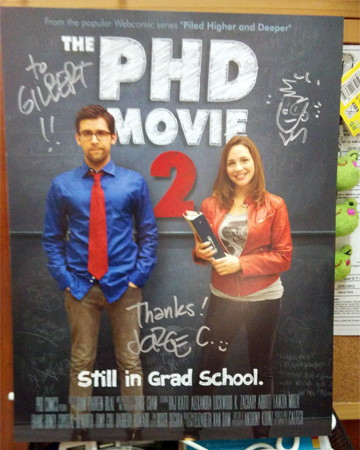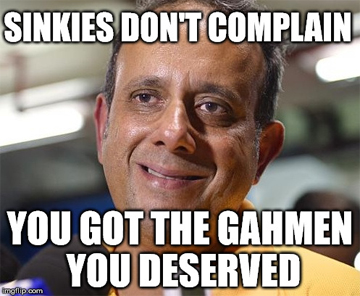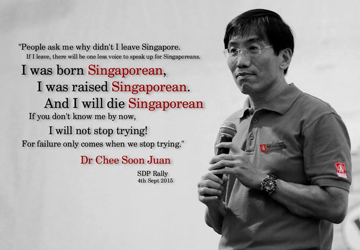|
| |
|
| |
|
|







|
|
TCHS 4O 2000 [4o's nonsense] alvinny [2] - csq - edchong jenming - joseph - law meepok - mingqi - pea pengkian [2] - qwergopot - woof xinghao - zhengyu HCJC 01S60 [understated sixzero] andy - edwin - jack jiaqi - peter - rex serena SAF 21SA khenghui - jiaming - jinrui [2] ritchie - vicknesh - zhenhao Others Lwei [2] - shaowei - website links - Alien Loves Predator BloggerSG Cute Overload! Cyanide and Happiness Daily Bunny Hamleto Hattrick Magic: The Gathering The Onion The Order of the Stick Perry Bible Fellowship PvP Online Soccernet Sluggy Freelance The Students' Sketchpad Talk Rock Talking Cock.com Tom the Dancing Bug Wikipedia Wulffmorgenthaler |
|
bert's blog v1.21 Powered by glolg Programmed with Perl 5.6.1 on Apache/1.3.27 (Red Hat Linux) best viewed at 1024 x 768 resolution on Internet Explorer 6.0+ or Mozilla Firefox 1.5+ entry views: 1335 today's page views: 355 (14 mobile) all-time page views: 3386396 most viewed entry: 18739 views most commented entry: 14 comments number of entries: 1226 page created Fri Jun 20, 2025 08:17:23 |
|
- tagcloud - academics [70] art [8] changelog [49] current events [36] cute stuff [12] gaming [11] music [8] outings [16] philosophy [10] poetry [4] programming [15] rants [5] reviews [8] sport [37] travel [19] work [3] miscellaneous [75] |
|
- category tags - academics art changelog current events cute stuff gaming miscellaneous music outings philosophy poetry programming rants reviews sport travel work tags in total: 386 |

| ||
|
They like being screwed. Eh, actually, so do I." - Herr Ahm Some Nonpartisan Poster To Begin With Haven't watched it yet actually.  Thankfully, not for too much longer. Also got to hold my baby nephew for the first time yesterday. He does the "what is this idiot doing, if I don't open my eyes wide maybe he'll put me down" look magnificently. Sibei cute! Out Of Position Dr. Chang: *shuffling papers* Well, well, well. Lots to discuss. Overview first: the incumbents got returned to power with 69.9% of the popular vote, a near 10% increase from 2011, while main opposition the Workers' Party defended Hougang and Aljunied, but narrowly lost by-election trophy Punggol East, alongside not making any new inroads. Although we had plugged for an increase in incumbent votes, to the range of 59-65%, this is admittedly above what had been anticipated. Now, firstly, it should be said that this is - mostly - democracy in action; while my own opinion is that more and more diverse opposition pressure is desirable, one has to respect the outcome of the vote.  Also gets the similarity with China... (Source: forums.hardwarezone.com.sg) Notably, in terms of seat share, the results are identical to that of the "watershed" 2011 elections. Of course, the popular vote share swingback will be interpreted as a strong mandate, in other words, more of the same. Definitely, EDMW is having a field day with "drumsticks given, taking back whole chicken" sentiments and wallowing in misery and self-consolatory zeh zeh kym posts, but no prizes for guessing that one. Me: To sum up: 新加坡人是现实的. Again, as I've been saying all too often recently, nothing wrong with that. Dr. Chang: Going through what we got right, and what we didn't: on the WP retaining existing seats but not extending their margin due to the town council scare saga, this was mostly true, with the nationwide shift leading to a razor-thin defeat in Punggol East. About the SDP rising, I daresay they are now firmly the secondary opposition after the WP, and indeed lost less vote share compared to the last elections, but are shut out of the NCMP seats by the WP, as foreseen. Two of the greatest shocks of the election, personally, were in Fengshan and East Coast, which the incumbents kept with 57.5% and 60.7% of the vote respectively, which differed from my projections by almost exactly the 10% base swing. Other than that, the SPP appears to be history, with Lina Chiam getting just 33.6% in Chiam See Tong's 25 year-stronghold of Potong Pasir, and the seasoned Jeannette Chong-Aruldoss but 28.2% in Mountbatten. Me: It looks like a very sad conclusion to Chiam See Tong's political career; so it seems that our former PM's admonition not to "chase after meat" rang true, after all - citizens have shown themselves to prefer carrots instead. Some are questioning why the Opposition should bother at all, and from what happened, it's hard to answer that question.  What has been seen... (Source: bbc.co.uk) Dr. Chang: *flicks on Powerpoint slide* That said, the outcome reflects some 5% of the voters switching from the opposition to the incumbents in general, as compared to the last election. Is that a lot? Well... taking into account popularly-recognized factors, perhaps not:
As such, one supposes that much of the electorate can be characterized as:
And, what probably wasn't a factor:
 Eh you die your business lah, this is Singapore leh (Source: facebook.com) Your thoughts, human? Me: You have got to give it to the incumbents, they've managed the institutional lock-in near-flawlessly. I don't want to lie - I remain utterly unconvinced that in the long term, this practice of having a dominant party control all the pursestrings and moulding social and economic policy from the top down is best for the nation. Now, there are plenty of systems that offer a more proportionate voice, but there's also zero indication that the incumbents will ever consider them, given that the GRCs had been engineered to push in the other direction. But, fine, I can see the attraction of the unity, undivided, don't-think-too-much manifesto of the incumbents, all the more as they actually do kope choice ideas from the opposition - without attribution, obviously. If you haven't figured it out, the first rule of winning elections here has been - protect the economy, protect property value, for the next five years. The rest, all negotiable. Actually, in this, one might realise that perhaps, locals are just getting what they deserve, as the esteemed Reform Party sec-gen said. For example, the prevailing complaint against foreigners has often not been against them as a whole, but along the lines of "foreign workers do jobs locals don't want, so it's ok, but foreign PMETs displace locals, is bad." From this, it seems that not many actually have a problem of a large permanent transient underclass of maybe 20% of the population, as long as their own ricebowl is unaffected. I don't want to make this more of a ramble than it has been, so I'll just expand on the CPF-HDB setup covered in the previous blog post, as promised in the corresponding comments. One thing about the incumbents, is that they have often managed to discredit their more prominent critics, by harping on the parts of their analyses that are poor - though to be fair, much of this has been self-inflicted. Taking Roy Ngerng as an example: While his mainstream reputation is probably irrevocably soiled, it does not follow that all - or even most - of his writings make no sense. Sadly for him, the points of his that are bad, for example the complaint that we spend only S$4 billion annually of the S$66 billion Medisave balance, when this should be roughly how a health insurance fund operates, have tended to be used to shout down his other, better, points. Another of Ngerng's problems is possibly informational overload. Though one can hardly knock him on lack of background research, the dumping of huge amounts of data and accompanying charts have made many of his articles slightly tiring to follow, and moreover lend themselves to having minor technical errors, again empowering his detractors. In fact, he has covered the CPF-HDB relationship extremely thoroughly, but very unfortunately, I suspect many will dismiss it offhand because "oh, it's the guy who harassed special needs kid at his demonstration". Properties (And Retirement, Revisited) Let me then try to distill the arguments. A commenter asked if my own take was that HDB prices should have been kept low, to the point that people would be able to service installments from take-home pay. I answered in the affirmative - house should be house, investment asset should be investment asset, they should not have been so systematically mixed. It could be enlightening to consider this CPF-HDB tie-up from the view of the various stakeholders:
In summary: the administration has, for the first fifty years of an independent Singapore, been taking in rather more from HDB public housing, than they have had to pay out due to CPF pension commitments. Moreover, part of the CPF burden has been taken up by new entrants (resale flat buyers) Due to demographics, however, the CPF liability part is set to increase heavily, as the HDB mortgage income inflow part is set to plunge. Officially, Singapore has few social safety nets/trampolines, which makes any decline in value of one's CPF nest egg - which is in turn near-synonymous with HDB flat value - quite uncountenanceable indeed. Note again the titanic disconnect between the people who introduced the CPF-pay-HDB policy, and those who will have to find a way to honour those commitments; the first group were the politicians-bureaucrats of the late Sixties, while the second group - due to the 99-year lease - will be those in charge in 2030 and beyond... probably when almost all of the first group have passed on! Definitely, the change from the system running a net positive (HDB mortgages dominate CPF payouts) to a net negative (vice versa) would never exactly have been sudden, though it would certainly be inexorable. It's not easy to come up with exact figures, all the more due to the administration's noted stinginess with this kind of data, but on a big-picture level, I believe that this description is broadly accurate. The response has been the obvious one - since we need more new HDB buyers to help support the retiring ones than the native birthrate can provide, why, simply import them! Policy has been to create about 20000 new citizens on average each year, which translates into additional annual HDB demand in the ballpark of perhaps 10000 flats? To put this in perspective, the number of live births nationally has been between 40000 to 50000 since 1970, which suggests that the boost in HDB demand from the "natural" level is maybe as high as an extra 50%, without even considering permanent residents! Of course, thing is, new citizens are also citizens - if they're being recruited at an average age of 25, then they will also constitute new CPF liabilities payable forty years hence... but it's not as if such timelags ever stopped policymakers. Actually, the consequences were recognized at least as far back as 1986, but for some reason, it all trundled on. Which is why one suspects that the pressure to continually grow the population would be much reduced without CPF value being so dependant on housing prices - imagine that the CPF had instead been barred from being used to pay mortgages, and had instead largely been diversified in major global financial markets. Ignoring the liquidity benefits, this would also protect pensions from domestic downturns - are enemies really gonna crash all the markets to get at you? - but well, every institutional investor, homegrown stalwarts not excepted, thinks he's smarter than the market. SG100 Incoming Dr. Chang: *nods* Can't say this doesn't make sense. Me: And, once more, CPF is not self-funded, for most intents and purposes. If a typical citizen puts S$400000 into his CPF and uses S$300000 of it on a flat, he does not have S$400000 compounded by whatever the interest rate is - he has S$100000 compounded and a flat, value not guaranteed. Dr. Chang: One then supposes that another reason for the heavy incumbent bias is that, in view of the system, quite a lot have recognized that 大局已定. The only reliable way to prop up housing demand is to get new buyers, and for all their other grouses, no local homeowner wants to be the one left holding the bag when the game of musical chairs stops. In the absence of exceedingly bold leadership, the default strategy has to be to continue cranking the population lever, which - fortunately or not - can technically work for quite a long time. Me: For myself, I'd be mightily impressed if someone actually came up with a practicable roadmap for weaning local public housing off the CPF. Then again, Singapore is small, so a lot is possible - it might well turn out that simply being stable, with consistent rule of law, is sufficient to maintain the state as a regional base of operations and capital storage port, i.e. the Switzerland of South Asia. While I don't think I can ever fully support a one-party system bolstered by dubious institutional and electoral practices, I suppose it could have been worse. A part of me is still hoping for actual, robust, public examination of policies without handwaving, and a level playing field for non-incumbent parties, but another part suspects that neither is going to happen for a long, long time. Dr. Chang: Well, then have I got the song for ya. Whatever will be, will be Next: Points Posthaste
|
|||||||
 Copyright © 2006-2025 GLYS. All Rights Reserved. |
|||||||